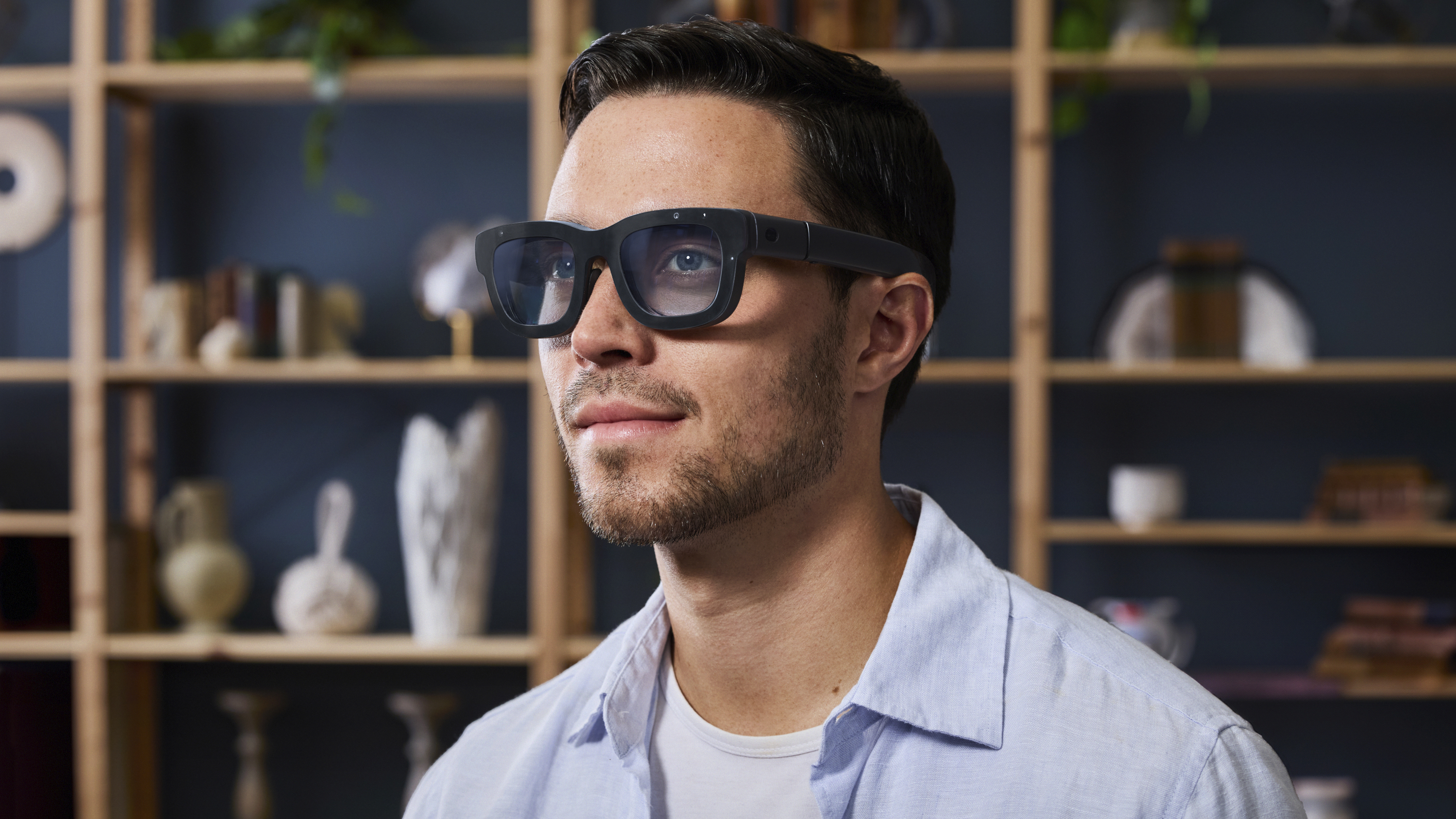Meta Orion AR glasses — everything you need to know
Has Meta shown us the future of AR glasses?

When Mark Zuckerberg took the stage at Meta Connect 2024, there was an inkling that the Meta CEO would announce something regarding the rumored Project Orion.
However, the prototype smart glasses he did reveal were still a surprise and pointed to a different way for us to think about smart glasses and what kind of technology can power them.
Touting its prototype as the most advanced pair of augmented reality glasses ever built, Meta is using the Orion as the basis for a future set of commercially available smart glasses.
Apparently, it wasn't easy for Meta, with Zuckerberg saying they've spent more than a decade working on them. "Nailing the form factor, delivering holographic displays, developing compelling AR experiences, creating new human-computer interaction (HCI) paradigms — and doing it all in one cohesive product — is one of the most difficult challenges our industry has ever faced," said Meta in a blog post.
Here's what we know so far about the Meta Orion and Meta's plans for future AR glasses.
Meta Orion: Design
The Orion prototypes feature some surprisingly thick frames especially compared to the Ray-Ban Meta smart glasses that are currently available. We assume that Meta will slim these down by the time they ship a product.
Control of the glasses can be accomplished via your voice as well as through eye and hand tracking. Zuckerberg used the phrase "neural link" to describe another control method, but this is actually an EMG wristband that enables swiping, clicking and scrolling. Also, there are no cables connecting anything to the glasses.
Sign up to get the BEST of Tom's Guide direct to your inbox.
Get instant access to breaking news, the hottest reviews, great deals and helpful tips.
According to a CNET preview, the glasses currently need an external processor puck that wirelessly feeds apps and graphics to the glasses.
The glasses only weigh 100 grams (or 3.5 ounces).
Meta Orion: Lenses
Perhaps the most interesting feature of the Orion glasses are the lenses, which are not made from glass or plastic.
Instead, Meta is using a silicon carbide where tiny projections are beamed onto the lenses. This material is supposed to be more durable, lighter and features an ultrahigh index for refraction of the on-board projectors.
The lenses look a little dark, sort of like transition lenses in mid transition, but it does allow you to still see someone's expressions and eyes while talking with them.
Supposedly, they have a 70-degree field of view, fairly impressive especially when compared to the newly announced Meta Quest 3S headset which features a 96 degree FOV.
Meta Orion: Software
Meta didn't name any specific software or applications when it announced the Orion glasses.
However, Zuckerberg did spend time talking about speaking with holographic images of other people. A video demo showed off mixed reality versions of pong transposed on surfaces in front of people.
Some of the augmented reality interfaces suggested RSS feeds, watching YouTube, listening to music via Spotify or checking in on scores via ESPN. Whether or not the software is capable of that now is unclear.
Meta Orion: Release date and price
There is no timetable for when an Orion based product will be available. Zuckerberg said that Meta is treating the platform as a developer kit while they work to get the price down and slim the design.
While Orion may not arrive anytime soon, Meta has said that we should expect the price of a pair of future Orion AR glasses to be closer to that of a high-end phone or a laptop.
For reference, the recently launched iPhone 16 Pro Max came with a starting price of $1,199.
Meta Orion: Outlook
As we mentioned, currently, the Orion glasses are being pitched as a developer kit for Meta and external partners to create software and hardware for the new mixed reality platform.
Whether this becomes a set of highly upgraded Ray-Ban Meta smart glasses or entirely new product remains to be seen.
Mark Zuckerberg seemed all in on the project, and it looks like Meta is putting time and resources into making this a commercially viable product.
For now, it looks promising.
More from Tom's Guide

Scott Younker is the West Coast Reporter at Tom’s Guide. He covers all the lastest tech news. He’s been involved in tech since 2011 at various outlets and is on an ongoing hunt to build the easiest to use home media system. When not writing about the latest devices, you are more than welcome to discuss board games or disc golf with him.
